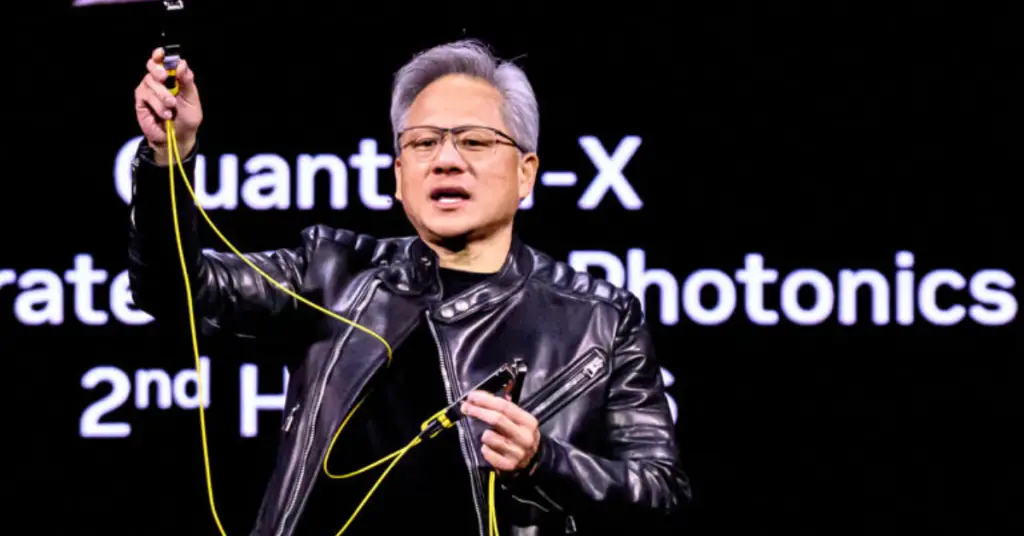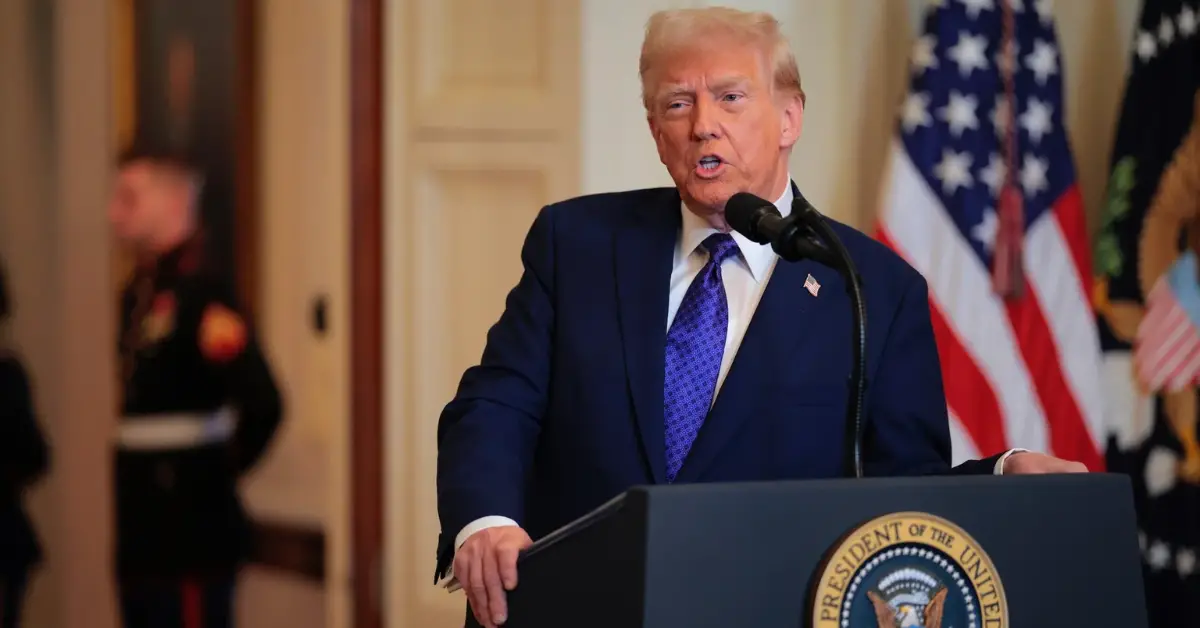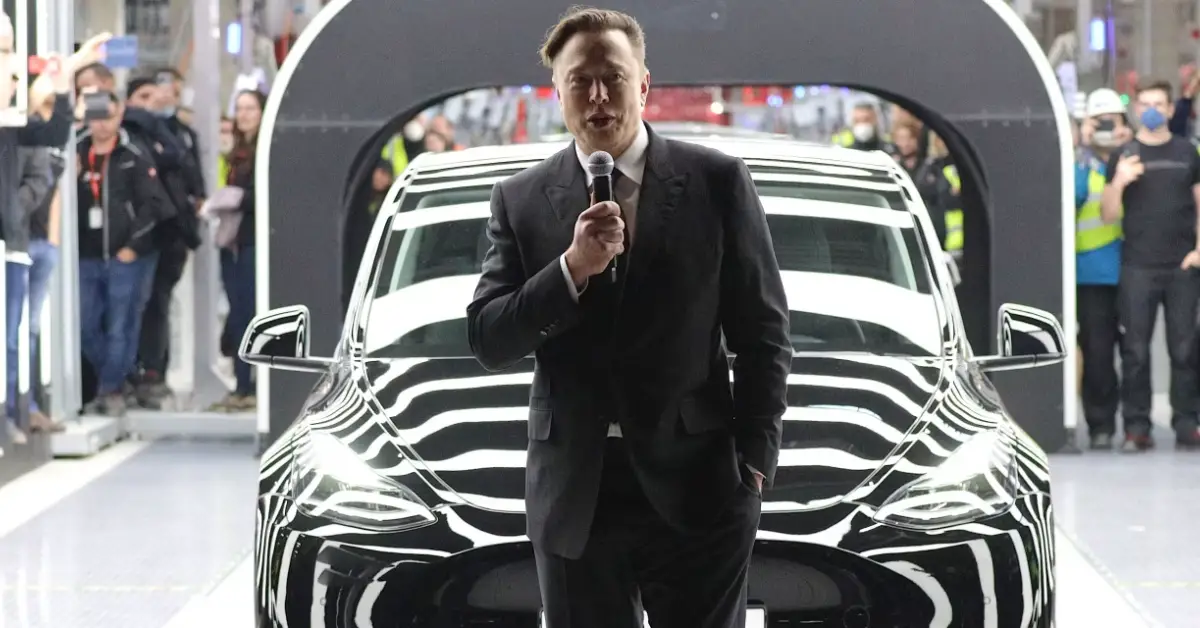Nvidia’s CEO, Jensen Huang, is currently in Beijing, aiming to reassure Chinese officials amid ongoing trade tensions between the U.S. and China. His visit comes just days after Nvidia made a significant announcement—one that involves a $500 billion investment in the U.S. The company will build AI supercomputers in the United States for the first time, marking a new chapter in its manufacturing process. Huang’s visit to China is part of the company’s ongoing effort to maintain a delicate balance between its business dealings with both countries.
During his time in Beijing, Huang met with Ren Hongbin, the chairman of the China Council for the Promotion of International Trade. According to state-run CCTV, Huang emphasised that China is a “very important market” for Nvidia. The chipmaker expressed its hopes to continue cooperation with China, despite the ongoing geopolitical tensions.
As a key player in the tech industry, Nvidia is caught in the middle of the ongoing U.S.-China trade war, making the company’s position particularly precarious. Both countries have implemented tariffs and retaliatory measures, resulting in Nvidia’s share price experiencing sharp losses.
Despite this challenge, Nvidia’s situation highlights the tricky position that many businesses with global operations find themselves in. The company must navigate a constantly shifting trade environment, balancing relationships with two major markets. While China remains an important market, the U.S. represents the larger of the two, accounting for approximately 42% of Nvidia’s business, compared to China and Hong Kong’s combined 15.5%. According to financial data compiled by CSI Market, this is the case.
The timing of Huang’s visit to Beijing is critical. The company’s recent announcement of the $500 billion investment in the U.S. has drawn attention, particularly from former President Donald Trump. Trump praised the investment, calling it “very big and exciting news.”
He also hailed the investment as a success for his administration’s strategy of using tariffs to encourage domestic manufacturing. Trump expressed that all necessary permits for Nvidia’s U.S. operations would be expedited, and the company would have quick access to the required regulatory approvals. On his Truth Social platform, Trump wrote, “All necessary permits will be expedited and quickly delivered to NVIDIA, as they will to all companies committing to be part of the Golden Age of America!”
This is a moment of opportunity for Nvidia, with the U.S. government’s backing bolstering the company’s commitment to build AI supercomputers on American soil. Huang also praised the investment, saying that the manufacturing move would help Nvidia meet the growing demand for AI chips. Additionally, it would strengthen Nvidia’s supply chain and enhance the company’s resilience in the face of future challenges.

However, Nvidia’s efforts are complicated by new U.S. export controls that could cost the company up to $5.5 billion. The U.S. government recently informed Nvidia that its H20 integrated circuits, along with other similar products, would now be subject to new export licensing requirements for an indefinite period.
The U.S. Commerce Department explained that these controls were necessary to mitigate the risk that Nvidia’s chips might be used in supercomputers in China, posing a potential security threat. This new development has caused major concerns for Nvidia, which had previously reassured its Chinese clients that their purchases of the H20 chips would not be affected.
The U.S. export restrictions focus on Nvidia’s H20 chips, as well as AMD’s MI308 chips and other similar products. This move was a surprise to Nvidia, particularly since Huang had previously met with Trump at Mar-a-Lago in Florida. In those discussions, the company was led to believe that it would not face such restrictions on the H20 products. The change in government stance adds another layer of complexity to Nvidia’s situation, as it attempts to maintain strong business ties with China while continuing to expand in the U.S.
This ongoing trade conflict could have significant consequences for Nvidia’s Chinese customers. Nori Chiou, an investment director at Singapore-based White Oak Capital Partners, suggested that the U.S. export restrictions could drive Nvidia’s Chinese clients toward Huawei. Huawei is quickly advancing its own chip development capabilities, particularly in the AI sector. If this trend continues, Huawei could become an increasingly competitive player in the semiconductor market, further complicating Nvidia’s global strategy.
Looking ahead, Nvidia’s future strategy will likely hinge on the direction of U.S.-China relations. The company faces tough decisions as it seeks to balance the interests of both countries. The U.S. market remains larger for Nvidia, but the Chinese market is undeniably important, particularly given the growing demand for AI chips. Nvidia is walking a geopolitical tightrope, trying to avoid alienating either side while securing its position in both markets.
The U.S. government’s approach to the semiconductor industry is expected to continue evolving, and Nvidia will likely face additional restrictions or tariff measures in the future. As the U.S.-China relationship remains uncertain, Nvidia must remain agile, adapting to new challenges as they arise. Whether the company can maintain its position in both the U.S. and China will depend on how the situation unfolds in the coming months.
Nvidia is at a critical juncture. The company’s efforts to invest heavily in U.S. manufacturing are a crucial step in strengthening its position in the rapidly growing AI market. However, the challenges posed by export restrictions, trade tensions, and shifting government policies make it clear that Nvidia’s path forward will not be easy. As the company navigates these complex geopolitical waters, its ability to adapt to changing circumstances will be key to its long-term success.
Disclaimer: This article has been meticulously fact-checked by our team to ensure accuracy and uphold transparency. We strive to deliver trustworthy and dependable content to our readers.




